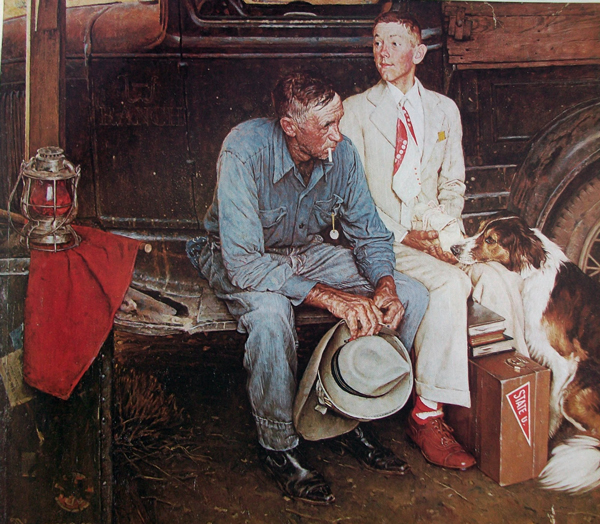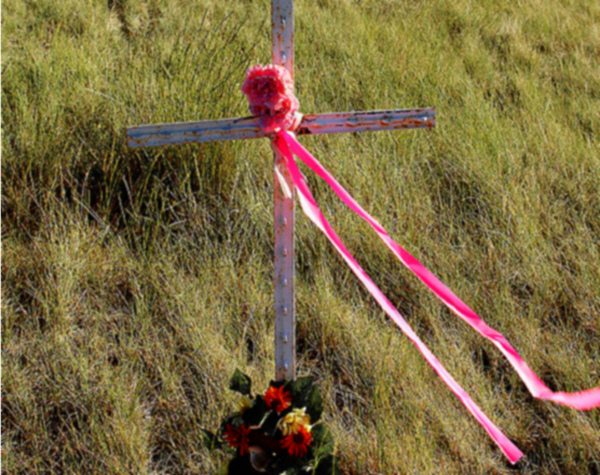Quotes about fathers
What’s the best thing your father taught you? Some of my buddies answered that question.
“…my father had tattoos on both of his arms. When l was 16 he told me never to do what he had done. I answered “No problem.” and I went along with him. l’ve never regretted my decision.”
— Eric Blount
The best thing my father taught me was how to love a child! There isn’t even a close second best. — Neil Lukatch
The best piece of advice I ever got was from a long-time friend of my father’s, a few years after my father’s untimely death. He told me If I’m ever really pissed off at someone, to write that person a letter (email today) and sleep on it before sending. Can’t tell you how many times I’ve disregarded that wise info, every time to have regretted my decision.
I would hope that, having ever had the chance to converse with my Father, he would have advised me to: Be myself, try to do well and above all else, have a sense of humor. — Jerry Malsh
For most of his working life, my father drove a Greyhound Bus (in those 1950s days, as American as hotdogs and apple pie). As a child, I sometimes got to go along…From watching him work, I learned that people respond to being treated with respect and dignity… and that working in the service of others is an honorable way to make a living. —Patrick Keoller
Education. Always remember and respect our family name. Always early, never late (this applied to our evening meal and to any business meeting). — George Brigandi
My father gave me very little advice, but always took the time to listen to me and was often skillful at reading between the lines of my conversations with him. I feel now as though he was helping me to trust my own inner guidance. — Steve Starr
My father was big on honesty. He used to say being honest is like being a ‘little bit pregnant.’ Either you are or you’re not. — Brian Cox
The main lesson that I learned from my father is that for most of us, what we do is much more significant and lasting than what we say. It is not so much the specific lessons and habits that my father taught me that have stayed with me, but the example of how he lived his life and demonstrated his values and beliefs through everyday actions. — Bill Lampke
I learned from my father that in the Post Office at the time — and I think it might still be the case — that bosses were called “stupidvisors.”I don’t have a stupidvisor anymore, so you can use my name. — Harold Schlegel
I lost my father in 1981. Since my folks were holocaust survivors we were very close. When he died I took it extremely hard and lost quite a lot of weight and asked why did he had to die before he saw see either of his children marry. I just finished Viktor Frankl’s book “Man’s Search for Meaning.” His mantra is “compromise” which I try to live by. — Rami Hagari
My father was a physician, a devout Catholic, and a very witty man. This is all background for two quotes. “There are three people with whom you need to be totally honest: your doctor, your lawyer, and your priest.” He also had a great admonition. “ Never argue with a fool, because after a while, spectators can’t tell the difference!” — Jim O’Neill
He was an attorney and loved his work… I was proud of him as a professional respected in his vocation. He believed in responsibly caring for his family in the toughest times of the great depression. He took pride in what was his and worked diligently to keep them well-cared for. — Harry Wilson
One thing I remember is that my dad gave me an early appreciation for science. We took numerous trips to the museums and used a small telescope to look at the planets. I have a fond memory of us building paper maché solar systems. — Neal Solomon
Our generation is big on hugs but my dad expressed love by setting examples. I watched him set his own responsibilities and meet them. Sure, his family was most important, but paying the monthly mortgage was also his top priority. — Chris Walker
My father developeda serious illness in midlife. He taught me that it takes the guts to hang in there — Pat Shiplett
Two things my father told me: The purpose of life is to have a positive effect in those who are in one’s life. And, seemly impossible goals can be achieved through perseverance and patience. — Ed Wang





